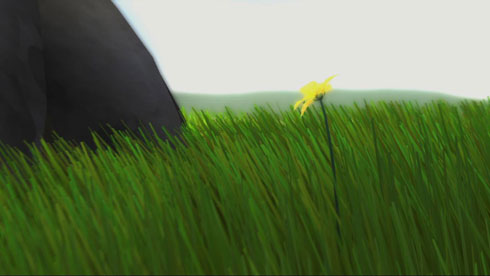Click here to read full series on Girl Power Well Before the 21st Century
It is easy to get caught up in a material world. Most of us want to be fancy. We want to live beyond survival and into luxury. Here is a story of how one Muslim woman ascended poverty and reached for her love of Allah (Subhana Wa Ta’ala) as her means of ascension in this world.
Never underestimate the power one woman has to overcome hardship.

Rabi’a al-Adawiyyah may not be as well known as A’ishah or Khadijah (may Allah be pleased with them both), she lived after the initial struggles of Islam in the 8th century and had a major influence on the spiritual growth of Muslims.
The Beginning
The details of her childhood are not clear and historians debate whether she had siblings or not. However, it is clear that she was born into an extremely poor family. Her parents died while she was very young, she was displaced from any family members she may have had and sold into slavery.
The man who bought her for 6 dirhams at the time was not kind. She was forced into grueling physical labor during the day, and tried escape several times unsuccessfully. She gave up on the idea of trying to escape and found freedom in her captivity through Islam.
She continued to work during the day, long grueling hours of physical labor and prayed optional prayers at night. This was her escape. Through prayer her faith increased and she eventually began to fast during the day. SubhanAllah. She maintained the arduous labor during the day while purging her body, mind and spirit through fasting.
Her ‘owner’ witnessed her devotion and was so touched by her dedication to Allah that he let her go. While her attempts to physically escape failed, it was through her spiritual escape that moved this individual so profoundly that he freed his slave.
After Slavery
Once freed she went to the desert and lived with the Bedouins for some time before returning to her home town of Basra, in current day Iraq. She lived in very humble dwellings and continued her life of fasting, praying and complete devotion to Allah (Subhanahu Wa Ta’la). While not too much is known about her, it is clear that she renounced materialism for zuhd.
She became known as the earliest mystic in Islam. Rabi’a al-Adawiyyah did not marry. In fact, as word of her piety spread, many influential men asked for her in marriage, including the ruler of Basra, but she refused them all.
Instead, she poured her energy into her mystical philosophy. A philosophy based on a “pure love of the divine”.
Her Philosophy
Rabi’a al-Adawaiyyah believed religion was based on the love of Allah (Subhanhu Wa Ta’la) for His Sake Alone. An individual is to worship Allah not out of fear of retribution from the Hellfire, nor from the desire of Paradise, but solely out of a pure and unhindered love. SubhanAllah. Her worship was based not on the premise of fearing punishment or hoping for reward but it was out of sincere devotion, a connection to the Divine.
Abu Huraira reported Allah’s Messenger (may peace be upon Him) as saying: “Verily. Allah would say on the Day of Resurrection: Where are those who have mutual love for My Glory’s sake? Today I shall shelter them in My shadow when there is no other shadow but the shadow of Mine.”
[Sahih Muslim]
Imagine someone illiterate of the common word, but could recite the Quran beautifully. This was Rabi’a. Her reputation steadily spread of her ability to not only recite the Quran but also respond to any criticism with precision.
Her knowledge, piety and spirituality transformed her into a powerful symbol of Islam. At a time during Islamic history when the Ummah was faced with excessive greed, this was a refreshing take on religion. She renounced material love for an uncontaminated love of The Divine.
3 Productivity Lessons for the 21st Century Muslim Woman
- Live as an example. Rabi’a al-Adawiyyah was a slave enduring extreme physical labor. It would have probably been much easier for her to turn inward, become cynical and loathe life because of her circumstance instead of investing even more energy in prayer, fasts and maintaining her spirit, but she didn’t. She was not overpowered by her circumstance. She lived her true spirit and moved even the toughest of hearts to set her free.
- Love for the sake of love. Too often we are caught up in the profit/loss analysis; this may have spilled over into our deen as well. Love Allah (Subhanahu Wa Ta’la) for the sake of love alone. Purifying our intention will help bring everything together.
- Find your peace in silence. Too often, as women we are shouldered with so much responsibility, it can be overwhelming. During such times, find your peace in silence. Even if it is a few minutes a day. Clear your mind of any static that may be hindering not only your productivity but your emotional and spiritual well-being.
Who is your favorite productive muslimah, past or present? Share with us below!
References: Khan, Muhammad. The Muslim 100: The Lives, Thoughts and Achievements of the Most Influential Muslims in History. Kube Publishing, 2008, Print.
About the Author
Ahlam Yassin is a freelance writer in a constant tug of war with words. You can read more from her at www.prowriterinc.com, or reach Ahlam directly at prowriterinc[at]gmail[dot]com.



